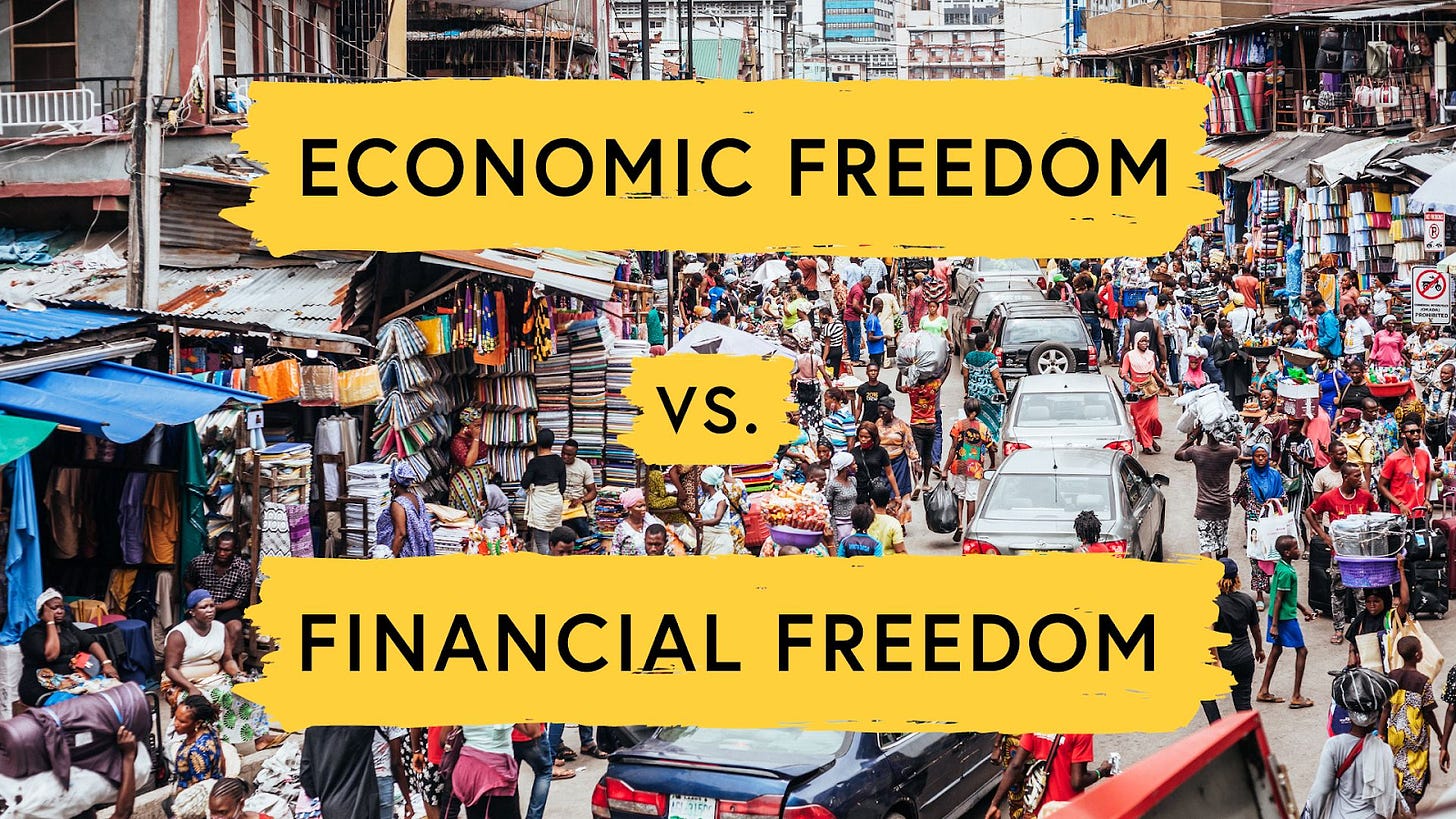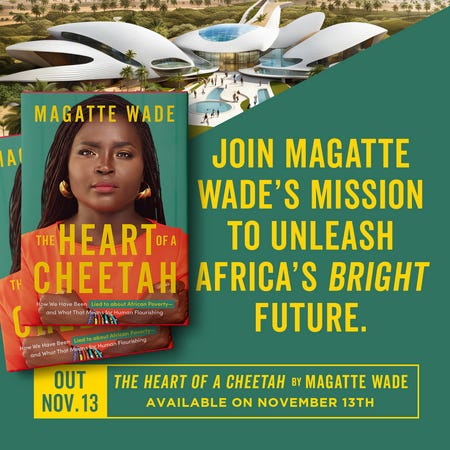It’s happened to me a million times.
I’m talking to one of my African friends about the need for economic freedom, and they say, “YEAH! Of course we want economic freedom!”
But the more we speak, the more I realize that what they have in mind isn’t economic freedom; it’s financial freedom.
I can see why those concepts get confused all the time. But it’s important to understand the distinction if we want to create a more prosperous African future together.
When I talk about economic freedom, I’m talking about freedom of enterprise. Or in other words:
How free are you to start and run a business?
Within that big question, you can consider the following:
How long does it take you to formally register your business?
How much money does it cost to formally register your business?
What additional fees do you have to pay to agencies, notaries, accountants, or lawyers in order to set up your business?
How much freedom do you and your employees have to enter into a contract without the government overseeing the whole process?
How much do you pay in taxes? (In poor countries, paradoxically, the rate tends to be astronomical, whereas wealthier nations have lower tax rates.)
What extra hoops do you have to jump through in order to actually pay those taxes? Do you have to drive across town fifteen times? Or hire a specialized employee to prepare the paperwork?
All those things, when you put them together, determine how much economic freedom an entrepreneur has. The more rules and regulations an entrepreneur faces, the less free they are to create and run a business.
These are also the kinds of indicators that institutions measure when they assess a country’s business rankings—for example, the World Bank’s Doing Business Index.
Those rankings show one thing clearly:
Africa has a long way to go before we achieve economic freedom.
On the Doing Business Index, only a handful of African nations fall in the top half, but fourteen African countries fall within the bottom twenty.
So, to sum up:
Economic freedom refers to how many hoops entrepreneurs have to jump through in order to do business.
Financial freedom means having money in your pocket. When you’re financially free, you have enough money to do whatever you need to do without asking anyone for help or support.
Financial freedom is important. And naturally, we all want it. But here’s why the distinction matters:
When you have financial freedom, you have to have already earned the money in your pocket. And before you can earn that money, you need economic freedom.
When entrepreneurs have sufficient economic freedom, they set a magical chain of events into motion. They’re able to build businesses, create jobs, and pay their employees.
And guess what. Once an employee has steady income, they’re able to work their way up to financial freedom.
Bottom line: You need economic freedom in order to achieve financial freedom.
All too often, conversations about Africa’s future focus on financial freedom. But I say we set our sights on the bigger goal: achieving economic freedom for all African nations.
That’s the real path to prosperity.
Starting a business is hard enough without the added weight of economic chains. If we want to see Africa rise—both in those business rankings and in the eyes of the world—we must cut the red tape that holds entrepreneurs back.
Good news! We’re officially 4 weeks away from the launch of my upcoming book The Heart of a Cheetah!
You can sign up for updates on the release here. And a huge THANK YOU to everyone who’s expressed support.
More details on pre-orders, giveaways, and live events coming soon!






Magatte's ideas on economic freedom are captured in her highly recommended and engrossing book, "The Heart of a Cheetah"